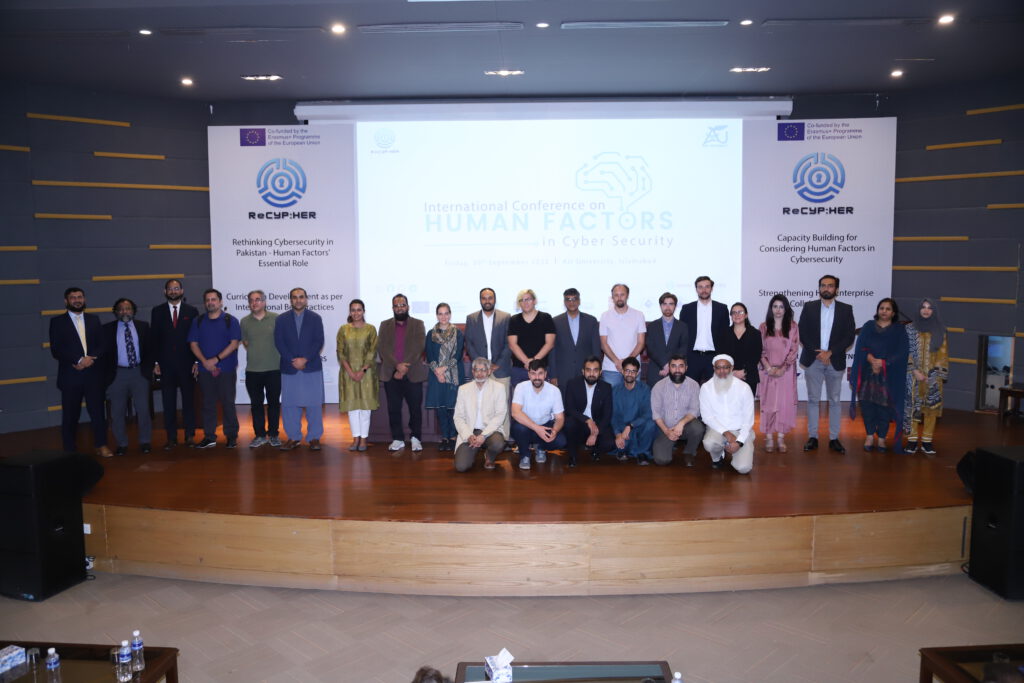Our first National Conference was held at the Air University in Islamabad on 30th September 2022, with an attendance of around 300 participants. The conference aimed to foster a network between cybersecurity experts and social scientists and promote the exchange of good practices. Thus, the social scientists and cybersecurity experts from Recypher project partners and other Universities across Pakistan were welcomed at the campus of the Air University. In addition to academicians and students, a significant number of industry executives, key government representatives, and relevant stakeholders also participated in the conference.
The Conference started with a speech by the Secretary of Information Technology, Mr. Mohsin Mushtaq, and was followed by speeches of the Vice Chancellor of the Air University, Air Marshal Javaid Ahmad HI(M) Retd., Director of the National Center for Cyber Security, Prof. Dr. Kashif Kifayat, and representatives of the European partners in ReCyP: HER (Dr. Nida Bajwa from the University of Saarland in Germany, Prof. Dr. Bilgin Metin from Bogazici University Istanbul, and Dr. Katharina Krombholz from CISPA Helmholtz Center for Information Security). All conference speakers emphasized the utmost significance of applying a psychological approach to raise awareness, understand, and curtail cyber security incidents in today’s digital world.
After the official opening ceremony and a keynote speech by Prof. Dr. Katharina Krombholz about the current trends and future perspectives of Human Factors in cybersecurity, the conference continued with open slots. Nine available slots provided different topics to the target groups. Three of those were research talks about Human Factors (e.g., Scientometric Analysis, Qualitative research in Usable Security). Four were round tables and panel discussions about different achievements in the ReCyP: HER project (Cybersecurity awareness centers: A new concept for immersive learning environments; Human Factors related challenges in Cybersecurity in Pakistan: Ideas for interdisciplinary elective project courses; Social Science meets Cybersecurity: How to design a course on HF- A pilot project; National Report on Interdisciplinary Collaboration between Cybersecurity experts and social scientists in Pakistan). Additionally, there were two presentations covering the topics of individual funding possibilities for students by DAAD and funding possibilities for universities for international collaboration by Erasmus+.
All in all, the National Conference was a complete success and a significant milestone in creating a strong network between social scientists and cybersecurity experts as well as industry representatives. We worked together as a team and have kept in touch with each other since. Many thanks to our partners from Air University, who organized a great event with everything needed and much more.
